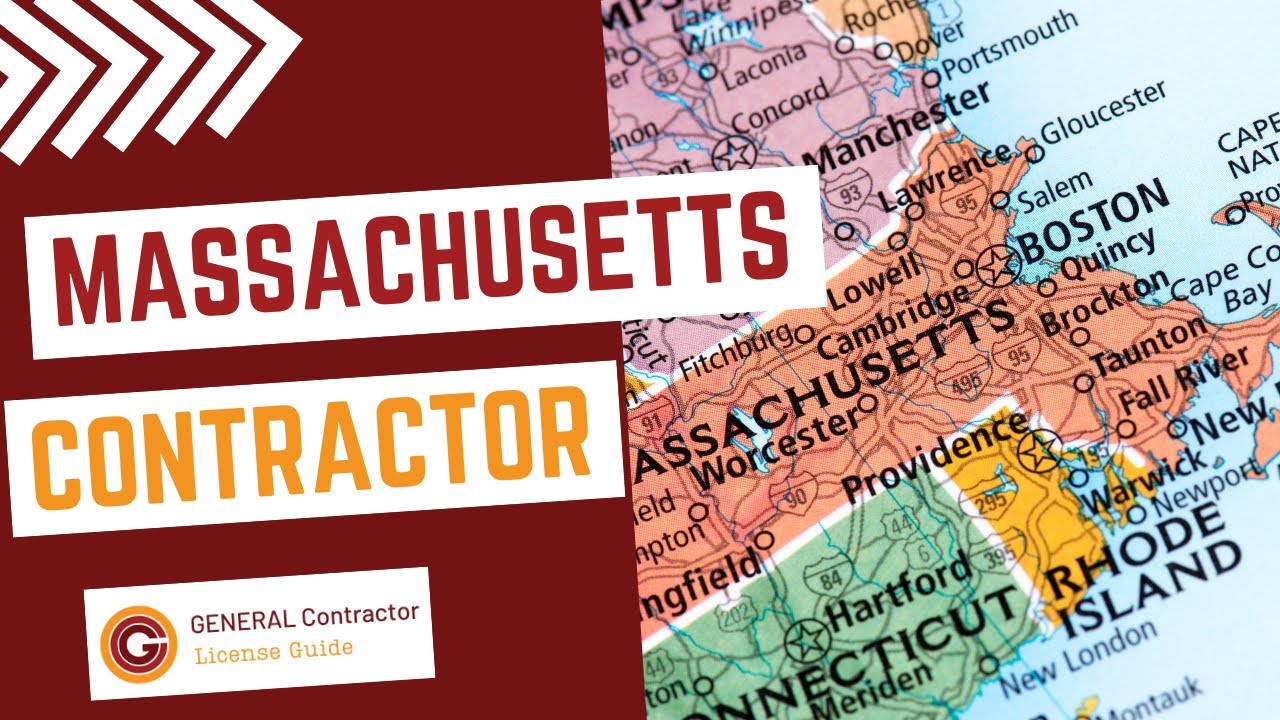Contractor Licensing Requirements in Massachusetts
In the state of Massachusetts, contractors are required to obtain a license in order to legally perform construction work. The licensing process is overseen by the Massachusetts Division of Professional Licensure (DPL) and is designed to ensure that contractors possess the necessary skills and qualifications to meet the state’s building standards. Applicants must meet certain educational and experience requirements and pass an examination to obtain a license. The licensing requirements in Massachusetts are strict to ensure the safety and quality of construction projects.
Contractor Licensing Requirements in Rhode Island
Similarly, in Rhode Island, contractors are also required to hold a license to carry out construction work. The Rhode Island Contractors’ Registration and Licensing Board is responsible for overseeing the licensing process in the state. To become licensed in Rhode Island, contractors must meet specific education and experience requirements and pass a trade examination. The licensing requirements in Rhode Island aim to protect consumers by ensuring that contractors are competent and qualified to perform construction work.
Can Massachusetts Licensed Contractors Work in Rhode Island?
Yes, Massachusetts licensed contractors can work in Rhode Island, but they must adhere to the licensing requirements set forth by the state of Rhode Island. Being licensed in Massachusetts does not automatically grant contractors the ability to work in Rhode Island without obtaining the appropriate license. Contractors must obtain a separate license from the Rhode Island Contractors’ Registration and Licensing Board to legally perform construction work in the state.
Understanding Interstate Contractor Licensing Laws
Interstate contractor licensing laws are regulations that govern the ability of contractors to work across state lines. Each state has its own specific licensing requirements, and contractors must comply with the regulations of the state in which they plan to work. While some states have reciprocal agreements that recognize licenses from other states, others may require contractors to go through a separate licensing process. It is important for contractors to familiarize themselves with the licensing laws of each state they intend to work in to ensure compliance.
Obtaining a License to Work in Rhode Island as a Massachusetts Contractor
To obtain a license to work in Rhode Island as a Massachusetts contractor, individuals must follow the licensing process set by the Rhode Island Contractors’ Registration and Licensing Board. This includes submitting an application, providing proof of education and experience, and passing a trade examination. Massachusetts contractors may be eligible for certain exemptions or streamlined processes based on their existing license, but it is important to consult the Rhode Island licensing board for specific requirements.
Key Differences in Licensing Requirements between Massachusetts and Rhode Island
While the licensing requirements for contractors in both Massachusetts and Rhode Island have similarities, there are also key differences. These differences may include variations in educational requirements, experience prerequisites, or trade examination formats. Contractors seeking to work in Rhode Island should carefully review the specific licensing requirements of the state to ensure they meet all qualifications and can successfully obtain a license.
Examining Reciprocity Agreements between the States
Reciprocity agreements between states allow contractors licensed in one state to obtain a license in another state without having to undergo the full licensing process. Unfortunately, there is no reciprocity agreement between Massachusetts and Rhode Island for contractor licensing. This means that Massachusetts contractors must still go through the licensing process in Rhode Island, even if they hold a valid Massachusetts license.
Steps to Obtain a Reciprocal License in Rhode Island
As mentioned earlier, there is no reciprocal licensing agreement between Massachusetts and Rhode Island. Therefore, Massachusetts contractors cannot obtain a reciprocal license in Rhode Island. Instead, they must follow the standard licensing process set by the Rhode Island Contractors’ Registration and Licensing Board. This involves submitting an application, meeting educational and experience requirements, and passing a trade examination.
Potential Challenges for Massachusetts Contractors Working in Rhode Island
Massachusetts contractors working in Rhode Island may face several challenges. These challenges include the need to familiarize themselves with Rhode Island’s specific building codes and regulations, establishing relationships with local suppliers and subcontractors, and adapting to any differences in construction practices between the two states. Additionally, the licensing process itself may present challenges, as Massachusetts contractors will need to allocate time and resources to obtain a separate license in Rhode Island.
Ensuring Compliance with Rhode Island’s Building Codes and Regulations
When working in Rhode Island, Massachusetts contractors must ensure compliance with the state’s building codes and regulations. These may differ from those in Massachusetts, and contractors must familiarize themselves with the specific requirements of the state they are working in. Compliance with building codes and regulations is essential to ensure the safety and integrity of construction projects and to avoid potential legal issues.
Benefits and Limitations of Working across State Lines
Working across state lines as a licensed contractor can present both benefits and limitations. One potential benefit is the opportunity to expand business operations and reach a larger client base. Additionally, working in different states may expose contractors to new construction techniques and experiences that can enhance their skills. However, limitations arise from the need to comply with different licensing requirements, building codes, and regulations in each state, which can add complexity and costs to projects.
Conclusion: Navigating the Licensing Process for Contractors in Rhode Island
For Massachusetts contractors looking to work in Rhode Island, it is important to understand the licensing requirements of both states. While Massachusetts licensure demonstrates qualifications, it does not exempt contractors from obtaining a separate license in Rhode Island. Contractors must follow the licensing process set by the Rhode Island Contractors’ Registration and Licensing Board to work legally in the state. By familiarizing themselves with the requirements, challenges, and potential benefits of working across state lines, Massachusetts contractors can navigate the licensing process and expand their business opportunities into Rhode Island.





